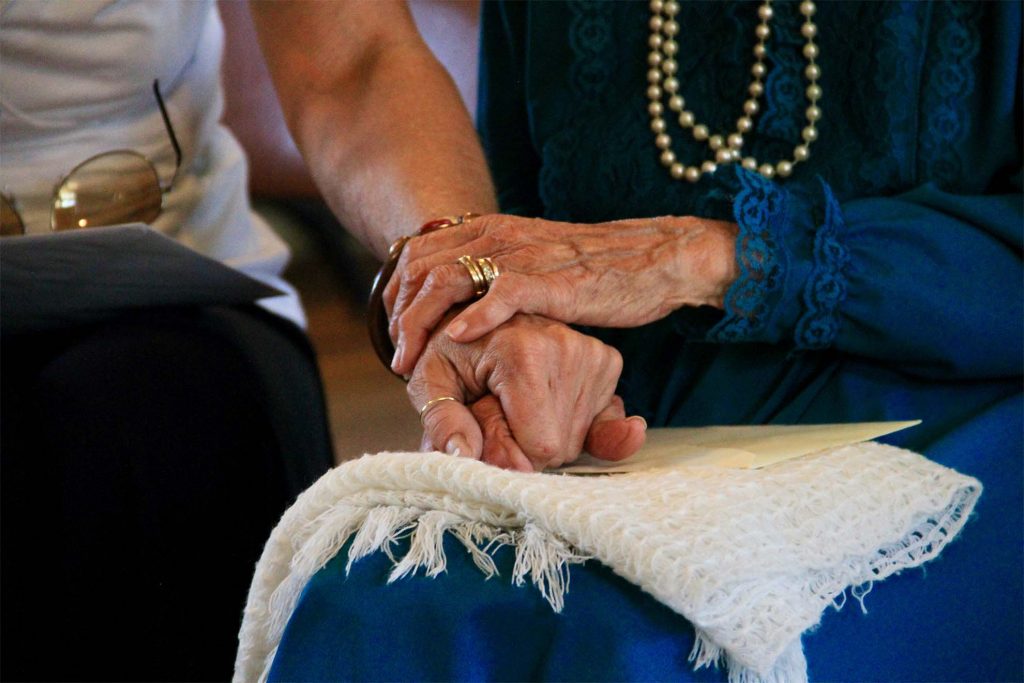What Is Respite Care & Where Is It Available?

Respite care is a temporary form of care provided either in a care home or through care at home. Respite services allows the primary caregiver to take a well earned break from their responsibilities, while ensuring the person they care for is looked after for a few weeks.
Often utilised by those caring for a family member, short-term respite care offers caregivers the opportunity to rest, go on holiday or handle other important tasks.
This article explains what respite care is, where it can be provided, the types of care and support offered, its costs, benefits and how to find it.
What Is Short-Term Respite Care?
Short-term respite care offers temporary relief and support for primary caregivers for one to three weeks. This care enables unpaid caregivers to address their own needs and caring responsibilities such as resting, traveling, or attending medical appointments. By preventing caregiver burnout, respite care allows caregivers to recharge physically, emotionally and mentally. The person receiving care benefits from services like personal care, daily task assistance, companionship and medication administration. Short-term respite care can be scheduled in advance for planned breaks and temporary care or arranged for emergencies requiring immediate caregiver relief.



Some care homes, like Oakbank, offer extended respite care lasting three weeks or more. This care supports individuals for several weeks or months, with our dedicated care team available to provide as much or as little assistance as needed. This option is ideal for those recovering from an injury or illness. During their stay, all residents receive a personalised care plan to ensure that all care provided is effective and tailored to their specific needs.
Where Can Respite Care Be Given?
Respite Care Homes: Respite care is commonly provided in respite or residential care homes, offering a home-like environment tailored to the care recipient’s needs. These homes typically have a minimum stay of one to three weeks and can sometimes arrange care within 48 hours of an inquiry. Many respite care homes accept advance bookings, making it easier to plan ahead for holidays or other breaks. Checking availability a few weeks in advance is often necessary.
Respite Care at Home: Respite care can also be provided at home, often for a couple of weeks. This is particularly useful for individuals needing temporary support while recovering from an illness or injury or when the primary caregiver needs a break. Respite care at home can be offered as domiciliary care (several hours a day) or live-in care (a caregiver temporarily moves in).



Day Care Services: Adult day care services offer a supportive environment for adults with additional care needs during the day. This type of short-term respite care includes activities, meals and necessary care services, provided in specialist centres or community buildings like village halls.
What Care & Support Are Provided Through Respite Care?
The services provided during respite care vary by provider but typically include:
- Personal Care: Assistance with everyday tasks such as going to the toilet, dressing, getting in and out of bed and washing.
- Mobility Support: Helping with movement using specialised equipment like hoists.
- Daily Tasks: Meal preparation, cleaning, pet care, gardening, shopping and running errands.
- Companionship: Providing company throughout the day.
- Specific Nursing Procedures: PEG feeding, stoma care, wound dressing and administering intravenous drugs.
- Specialist Care: Also known as Palliative Care for support for conditions such as dementia, Parkinson’s disease or cancer.
What to Expect from Respite Care
Before starting respite care, the care recipient’s needs will be assessed to determine the level of care required. The duration of care, typically a minimum of one or two weeks, will also be decided. Necessary paperwork, including consent forms and medical documentation, must be completed to ensure the care provider has all relevant information. A handover meeting may occur on the first day to discuss care needs and preferences. During respite care, care will be provided according to the assessed needs, which may include personal care, medication management and meal preparation. Carers may update family members on the care recipient’s wellbeing and any notable developments.
Signs You Need Respite Care (As a Carer)
- Feeling overwhelmed by caregiving demands and experiencing physical or emotional exhaustion.
- Struggling to find time for personal interests or other family members.
- Difficulty managing responsibilities like caregiving, work and relationships, leading to strained relationships.
- Concern about the quality of care being provided due to burnout.
How Long Does Respite Care Take to Organise?
The time to organise respite care varies. Some providers can arrange care within 48 hours, while others may take longer. Respite care in a care home typically requires more time to arrange due to viewing the home and conducting assessments. Home care agencies may offer quicker arrangements, depending on their availability.
How Much Does Respite Care Cost?
Respite care costs vary based on location and type of care:
- Respite Care at Home: Average of £28 per hour, approximately £560 per week for 20 hours and £2,427 per month.
- Live-In Care: Average of £228 per day, £1,596 per week and £6,916 per month.
Who Pays for Respite Care?
Payment for respite care depends on the care recipient’s savings, income and assets, determined through a financial assessment following a care needs assessment. If above a certain threshold, they will pay for their care; otherwise, the local authority may cover some or all costs, helping with any financial support.
Those needing nursing care might be eligible for NHS-funded nursing care or NHS continuing healthcare, depending on their condition and care setting. Self-funding individuals could qualify for benefits like Attendance Allowance or Personal Independence Payment (PIP), depending on their age.
What Are the Benefits of Respite Care?
For the Person Receiving Care
- Professional care and support provided by trained professionals, ensuring physical and emotional health is looked after.
- Enhanced wellbeing and social interaction, having opportunities to interact with others, reducing isolation and engaging in activities.
For the Carer
- Time for self-care allowing caregivers to pursue hobbies, travel, rest or handle personal tasks.
- Avoiding burnout, with regular breaks means reduced stress and improved mental health, supporting long-term caregiving.
- Peace of mind knowing loved ones are in a safe, supportive environment reduces care-related stress.
- Maintaining relationships, enabling more time with family and friends, improving personal relationships.
Respite Care at Oakbank Care Home
At Oakbank Care Home in Crieff, respite care provides individuals with round-the-clock access to care, 24 hours a day, 7 days a week. We adopt a person-centred approach, allowing residents to maintain their independence in a safe and supportive environment. Our dedicated team takes the time to learn each resident's interests, preferences and needs, ensuring tailored care. We work diligently to help each resident achieve their personal goals and objectives. For more information on respite care or any of our other care services such as Residential Care, Dementia Care and/or Nursing Care, please don’t hesitate to get in contact with us today.






